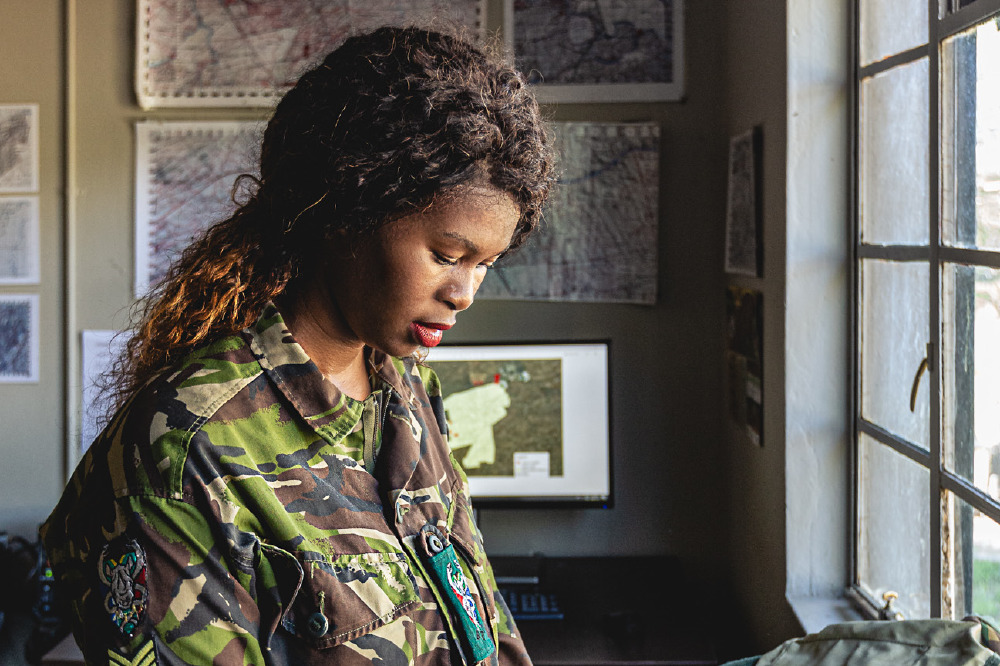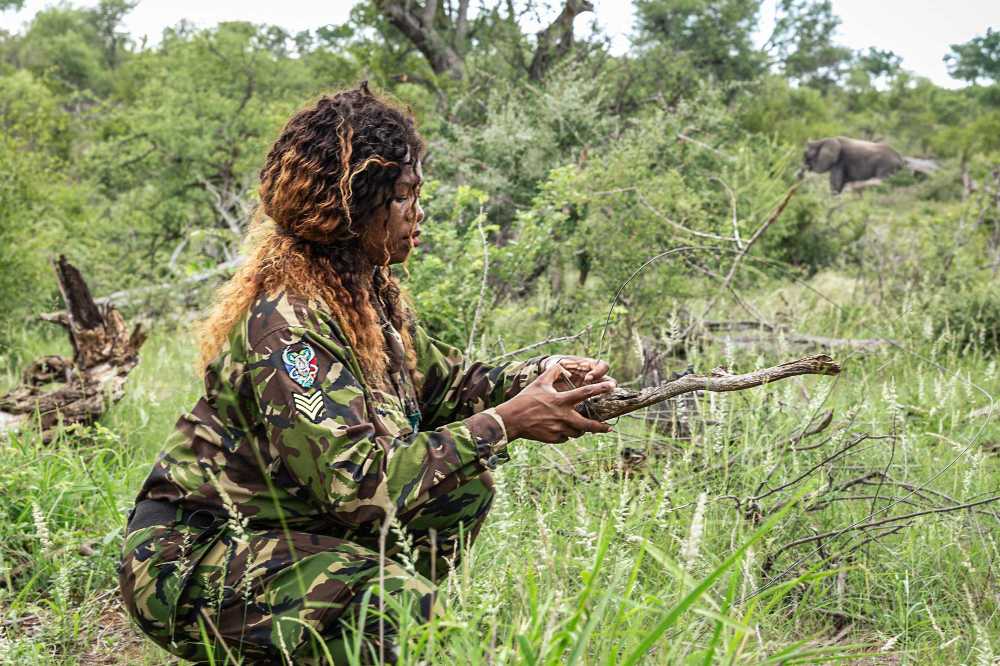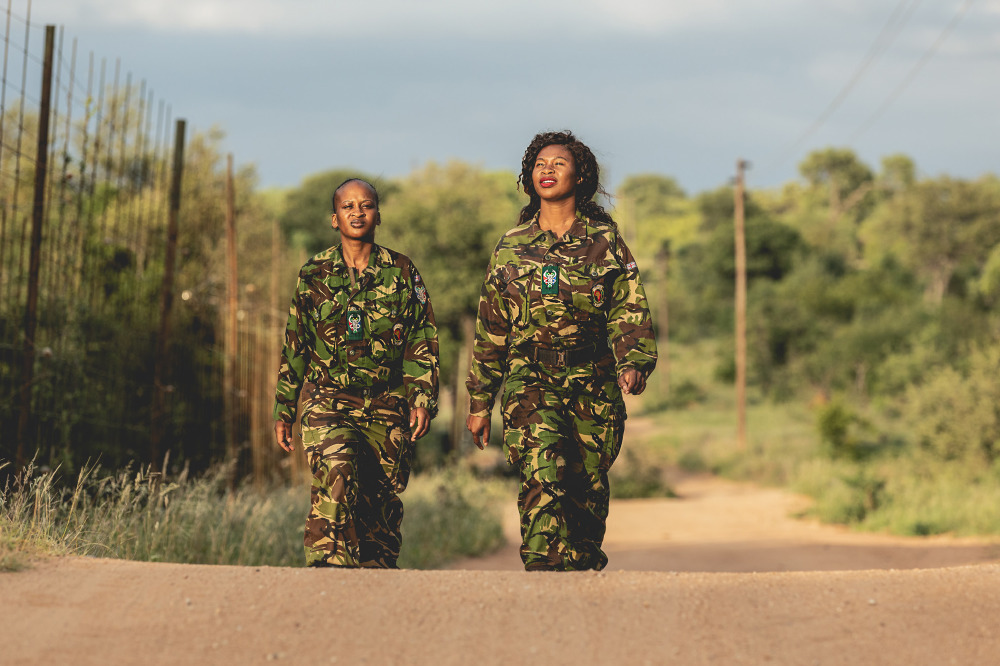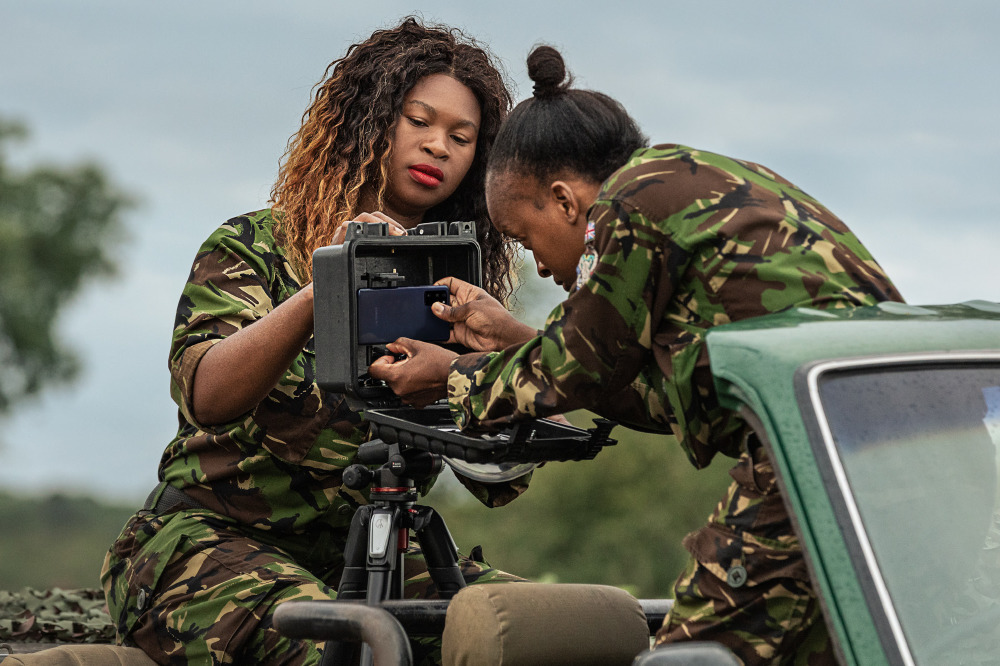I am a Supervisor in The Black Mamba Anti-Poaching Unit, an all-female, unarmed troop who patrol the Olifants West region of the Balule Nature Reserve, part of Greater Kruger National Park.

Leitah (Credit: Samsung Wildlife Watch)
Founded in 2013, we started with six young women. Now, eight years later, we have grown to 36 women.
I joined because I love being in the bush – I enjoy the quietness and seeing the animals. I also didn’t have money to further my studies and I saw it as an opportunity to start working, be responsible and continue to learn.

At first people said I wouldn’t be able to cope with the training because I’m a woman. Now I am a role model in the community. Being a woman and putting my boots on the ground without a weapon makes me feel like a hero. It’s not easy, the training is tough, but we do it with pride knowing we’re helping the next generation, giving women a voice, and protecting wild animals.
We are the first line of defence, standing between the animals and poachers, and are responsible for the early detection of poaching insurgents through monitoring and surveillance during our daily patrols. These are conducted on foot during first light and by vehicle at last light. Observation and listening posts are stationed in critical areas such as known entry and exit points and we do regular sweeps throughout the Reserve and neighbouring Tribal lands in search of snares.

We are also very active in our local communities and are working hard to try and educate people on conservation – especially the next generation – and to help them understand that the benefits of conservation are far greater than poaching.
South Africa's tourism industry has been severely impacted by the coronavirus pandemic and newly unemployed people are going hungry. Hotels and bush camps, which are normally big employers, have been empty since the end of March 2020, which has resulted in layoffs. So now, in desperation, some people who live nearby are turning to the reserve for bush meat.
This is why we have joined a new initiative set up by Samsung that is using technology to help fight back against poaching. Samsung Galaxy S20 FE handsets are being used to capture 24/7 live footage from the bush. We’re inviting everyone to help us monitor the animals in their natural habitat and protect them from poachers by going to wildlife-watch.com

Being a part of the two-month pilot has made us realise that the arms race against poaching isn’t about weaponry, it’s about technology. The phones are force multipliers, boosting existing surveillance and raising awareness of the work we do.
We now have eyes all around the world watching over the reserve and it has also brought the work of the Unit directly into people’s homes. The handsets are also adding crucial tech support to improve our daily patrols by improving communication and enabling us to capture quality imagery.
We don’t want our grandchildren to view rhinos in the same way they view the dinosaurs.
Tagged in South Africa Coronavirus

